
by admin | Jul 16, 2024 | Job, Employment Application, Interview Techniques, Job Analysis, Skills Gap Analysis
When it comes to finding a new job, creating a resume is an essential first step in the process. After all, your resume makes a first impression on employers and can mean the difference between an interview and an instant rejection. What information to include, how long it should be, and how to design and format it, are examples of things that need to be carefully considered. With the rising popularity of AI (Artificial Intelligence), many people are turning to ChatGPT to find inspiration and spur some ideas to get the process rolling. But, can ChatGPT really be trusted for resume writing? The answer depends on how you use it. Let’s explore the dos and don’ts of AI generated resumes, below:

Dos for ChatGPT resume writing
Use it as a starting point: ChatGPT is a great place to find inspiration for content that is pertinent to the job you are applying for. It can help you learn more about the skills, experiences, and other qualifications required for a role, and how your background makes you the right fit.
Tailor your professional history for a specific job: It is crucial to align your resume with the specific role you are applying to. You can use ChatGPT resume prompts to modify your existing accomplishments to be more tailored to the requirements and responsibilities outlined in the job description. It can also help you incorporate keywords from the job posting, increasing your chances of passing through an applicant tracking system (ATS).
Help you highlight achievements: Leveraging numbers in your resume can really help you show your potential impact and demonstrate your strengths, but this is something that ChatGPT cannot come up with on its own. ChapGPT, however, can help you rewrite your accomplishments with more impactful language. This can help you better convey your achievements and help you stand out.
Proofreading: ChatGPT can be a useful tool for catching typos and grammatical errors, and suggesting edits quickly. However, it’s important to understand its limitations. Always have another human go through your resume to identify other improvements to things like style and tone that AI might not be able to pick up on.
Don’ts for ChatGPT resume writing
Forget to fact check: Just because ChatGPT says it’s true, doesn’t mean it actually is. ChatGPT gathers data from the internet, and sometimes it can pick up on notions rather than facts or make assumptions about your work history that aren’t true. Before you submit your resume, make sure that the statements you are making are valid and accurately represent your background, industry, and skillset.
Misrepresent yourself: In a similar vein, allowing ChatGPT to exaggerate your qualifications is deceitful to a potential future employer. You may look good in the moment but if you can’t back the skills up, it will quickly show through in an interview or if/when you are hired. Be honest and truthful about your skills and experiences.
Copy + paste: Simply copying and pasting the ChatGPT resume generated content into your final document shows lack of care and creativity. It’s essential to add your personal touch and use your own voice. At the same time, ensure your resume is visually appealing, well-organized, and easy to read. Use consistent fonts and styles, and bullet points throughout to make strong, clear points for the reader.
Share sensitive information: If you’re using an online AI tool, don’t share sensitive or personal information that you wouldn’t want to be stored or accessed by others.
In summary, ChatGPT can be a valuable tool when writing your resume, but it should be used wisely. Take advantage of its ability to generate content efficiently, but always review, customize, and edit the content to ensure it represents you accurately and professionally.
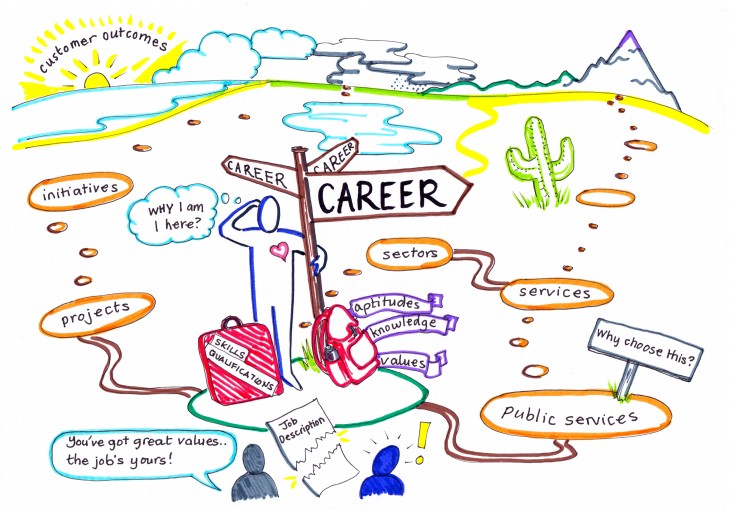
by admin | Jun 5, 2024 | Job Analysis, Skills Gap Analysis, Study
A well-defined career path is crucial for several reasons, each contributing to both personal fulfillment and professional success. Here’s why setting and following a career path is so important:
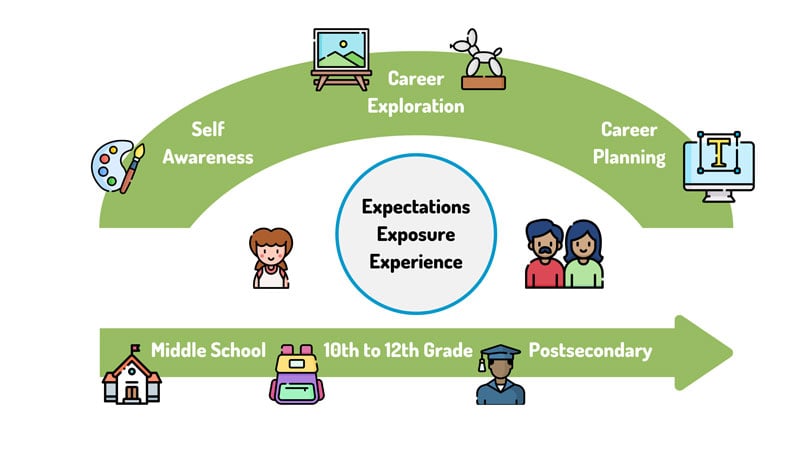
1.Direction and Clarity: Having a clear career path provides a sense of direction. It helps individuals focus their efforts on specific goals and milestones, reducing the likelihood of wandering aimlessly through different jobs. This clarity can be incredibly motivating and can help one prioritize learning and development activities that align directly with their career goals.
2. Goal Achievement: A career path helps break down the journey into manageable steps and stages. It allows individuals to set and achieve short-term objectives while working towards long-term aspirations. This structured approach to career development ensures continuous progress and can lead to higher satisfaction and success rates.
3. Skill Development: By understanding the requirements of your chosen career path, you can identify the skills and competencies you need to develop. This proactive approach to skill acquisition ensures that you remain competitive and relevant in your field, especially as job markets evolve and new technologies emerge.
4. Job Satisfaction and Engagement: People who work in careers that align with their personal interests and professional skills tend to be more engaged and satisfied. A career path that reflects one’s values and strengths can lead to greater job satisfaction, lower stress levels, and a higher quality of life.
5. Professional Growth : A career path provides a roadmap for advancement. It often includes planned upward movement, whether through promotions within a chosen field or strategic moves across different industries. This growth is not just about higher income but also about expanding responsibilities, gaining diverse experiences, and enhancing one’s reputation and influence in the industry.
6. Adaptability: With a career path, individuals can better anticipate changes in their industry and adapt accordingly. It encourages a mindset of lifelong learning and flexibility, which are crucial in today’s fast-paced work environments. Being adaptable helps ensure that you can navigate through economic downturns, industry disruptions, and job transitions more effectively.
7. Personal Fulfillment : Ultimately, a career path that aligns with one’s passions and strengths can lead to personal fulfillment. Achieving milestones and realizing one’s professional potential can be profoundly satisfying, contributing to overall happiness and well-being.
In essence, a career path helps individuals systematically approach their professional life, ensuring that they make informed decisions that lead to personal and professional fulfillment. It acts as a strategic plan that guides individuals through the complexities of the modern workplace, helping them to capitalize on opportunities and overcome challenges effectively.
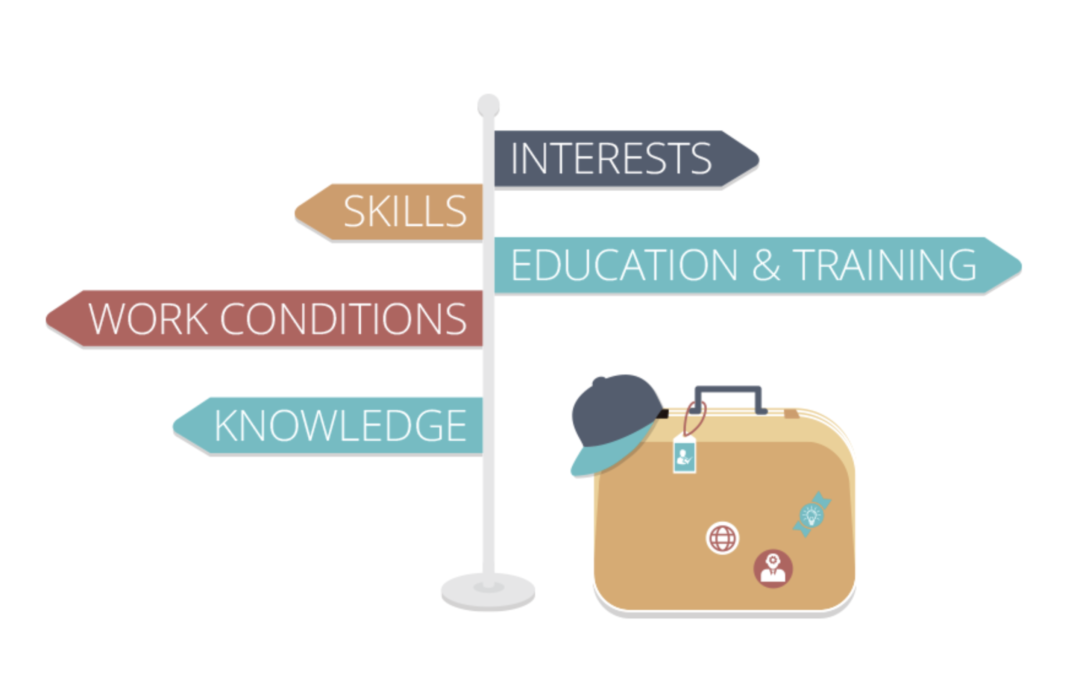
by admin | Jun 5, 2024 | Job Analysis, Skills Gap Analysis
In today’s dynamic world, choosing and navigating a career path is more complex and exciting than ever before. It’s not just about deciding what you want to be when you grow up; it’s about continuously adapting to new opportunities and challenges. This blog explores the concept of a career path, offers insights into how you can choose the right one for you, and provides tips for navigating your career journey effectively.

What is a Career Path?
A career path is the progression one follows in their professional life. It includes the jobs you take, the experiences you gain, and the skills you acquire. A well-defined career path helps you manage your growth from one stage of your career to another, aligning your job roles with your long-term career goals.
Choosing Your Career Path
Self-Assessment:
Start by understanding your interests, strengths, and values. Tools like personality assessments and career aptitude tests can provide insights into the types of careers that might suit you best.
Research:
Once you have an idea of your potential career fields, research them thoroughly. Understand the required qualifications, the day-to-day responsibilities, and long-term career prospects.
Education and Skills:
Depending on your chosen field, you might need specific educational qualifications or skills. Identify any gaps in your knowledge and seek the necessary training and education.
Networking:
Connect with professionals in your field to gain insights and advice. Networking can also open up opportunities for internships, apprenticeships, and even job offers.
Navigating Your Career Path
Setting Goals:
Define clear, achievable short-term and long-term goals. These should be specific, measurable, achievable, relevant, and time-bound (SMART).
Continuous Learning:
Stay relevant in your field by continually upgrading your skills. This could be through formal education, workshops, online courses, or self-study.
Seeking Opportunities:
Always be on the lookout for ways to advance your career, whether it’s a promotion, a new job, or a lateral move to a different department or industry that aligns more closely with your career goals.
Flexibility:
Be prepared to adapt your career path as industries evolve and personal priorities change. Flexibility can mean the difference between staying relevant or falling behind.
Mentorship:
Find mentors who can guide you through your career. A good mentor provides wisdom, guidance, and feedback that is invaluable as you navigate your career.
Challenges and Solutions
While navigating your career path, you may face challenges like job dissatisfaction, a lack of advancement opportunities, or industry downturns. Overcoming these challenges often requires a proactive approach, such as seeking feedback, considering a career pivot, or enhancing your skill set to increase your employability.
Conclusion
Your career path is uniquely yours. It’s a personal, often non-linear journey that can lead to fulfilling roles that align with your personal and professional aspirations. By actively managing your career development, staying adaptable, and pursuing continuous learning, you can effectively navigate the twists and turns of your career journey.
Remember, the most successful career paths are those that evolve. So, keep exploring, adapting, and moving forward with confidence and curiosity.

by admin | May 29, 2024 | Employee Orientation, Employee Handbooks, Job, Job Analysis, Skills Gap Analysis, Study
Finding and landing an internship as a college student is an important step in building a career foundation. Here’s a guide on how to search for and secure internships effectively:

Step 1: Define Your Goals
Start by understanding what you want to achieve through an internship. Are you looking to gain specific skills, explore a particular industry, or connect with a professional network? Clear objectives will help guide your search and decision-making process.
Step 2: Research Opportunities
– Online Job Boards: Websites like Indeed, LinkedIn, Glassdoor, and specialized sites such as Internships.com are great resources.
– University Career Center: Many colleges offer resources and counseling specifically for students seeking internships. They often have connections with companies looking for interns.
– Company Websites: If you have target companies in mind, visit their careers section. Many companies post internship opportunities directly on their websites.
– Networking: Attend career fairs, industry conferences, and networking events. Sometimes, opportunities come from personal connections, including professors, family, or friends.
Step 3: Prepare Your Application Materials
– Resume: Tailor your resume to highlight relevant coursework, projects, and skills that align with the internship. Keep it concise and professional.
– Cover Letter: Write a personalized cover letter for each application, explaining why you are interested in the internship and how you can contribute.
– Portfolio: For fields like graphic design, journalism, or software engineering, prepare a portfolio of your best work.
Step 4: Apply Early and Often
Internship positions, especially in competitive fields, can fill quickly. Start your search early in the academic year and apply to multiple opportunities to increase your chances.
Step 5: Prepare for Interviews
– Research the Company: Understand their products, services, culture, and industry.
– Practice Common Interview Questions: Prepare responses to common questions such as “What are your strengths and weaknesses?” or “Why do you want this internship?”
– Mock Interviews: Consider doing mock interviews with friends, family, or career counselors to build confidence.
Step 6: Follow Up
After an interview, send a thank-you email to express your appreciation for the opportunity to interview and reiterate your interest in the position. This can set you apart from other candidates.
Step 7: Evaluate Offers
If you receive multiple internship offers, compare them based on how well they meet your initial goals, the kind of learning opportunities they provide, and other factors like compensation and location.
Step 8: Learn and Network During Your Internship
Once you secure an internship, maximize the experience:
-Learn as Much as Possible: Take the opportunity to learn from everyone you can. Ask questions, seek feedback, and take on challenging projects.
– Build Relationships: Network with colleagues and other interns. These relationships can be valuable for your future career.
– *Maintain Professionalism: Treat the internship like a real job. Be punctual, meet deadlines, and contribute positively to the team.
Step 9: Reflect and Follow Up
After completing your internship, reflect on what you learned and how it aligns with your career goals. Stay in touch with your supervisors and coworkers, as they can be valuable references or mentors.
By following these steps, you can effectively search for, apply to, and maximize the benefits of internships, paving the way for future career opportunities.
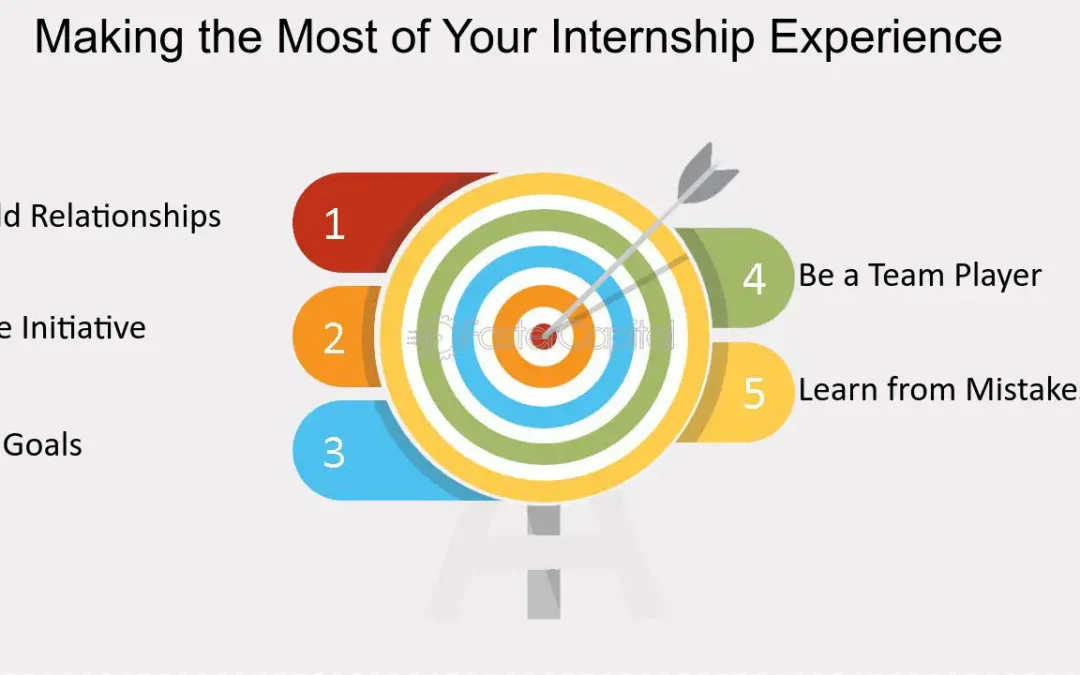
by admin | May 29, 2024 | Job Analysis, Employee Handbooks, Employee Orientation, Employment Application, Job, Skills Gap Analysis, Study
An internship is a valuable opportunity to gain practical experience, build professional skills, and establish a network in your desired industry. Here’s a comprehensive guide on how to make the most of your internship experience:

1. Set Clear Goals
Before starting your internship, define what you hope to achieve. Are you looking to develop specific skills, gain insights into a particular industry, or make professional connections? Setting clear, measurable goals will help you stay focused and evaluate your progress.
2. Understand Your Role and Responsibilities
– Learn the Basics: Understand the fundamental tasks and expectations of your role. Don’t hesitate to ask for a detailed description of your responsibilities.
– Ask Questions: In the beginning, you might feel overwhelmed. Ask questions to clarify tasks and expectations to ensure you’re on the right track.
3. Be Proactive
– Take Initiative: Look for opportunities to contribute beyond your assigned tasks. This could involve suggesting new ideas or helping a project in need.
– Seek Additional Projects: As you grow more comfortable in your role, ask for more responsibilities that align with your career interests and goals.
4. Build Your Network
– Connect Internally: Introduce yourself to as many coworkers as possible, not just those in your immediate team. Attend company events and social gatherings.
– Seek a Mentor: Identify someone within the organization from whom you can learn. This could be your supervisor or another experienced colleague.
– Maintain Contacts: Even after your internship ends, keep in touch with your colleagues and mentors. They can provide valuable advice and may inform you of future job opportunities.
5. Observe and Learn
– Industry Knowledge: Pay attention to how the company operates and how your department fits into the larger picture. Understand the industry trends and challenges.
– Professional Skills: Note the soft skills displayed by successful employees, such as communication, teamwork, and problem-solving.
6.Ask for Feedback
– Regular Feedback: Regularly ask for feedback on your performance. This not only shows your eagerness to improve but also helps you adjust your approach before small issues become larger.
– Performance Review: If your internship program includes a formal review, prepare by reviewing your accomplishments and areas for improvement.
7. Document Your Experience
– Keep a Journal: Regularly write down what you learn, the skills you develop, the projects you work on, and the people you meet.
– Portfolio: For creative fields, keep samples of your work to show future employers. For other fields, a detailed list of project roles and impacts can be useful.
8. Professional Conduct
– Punctuality : Always arrive on time or early, and respect deadlines.
– Dress Appropriately : Follow the company’s dress code, aiming for a professional appearance.
Ethics and Confidentiality: Be mindful of the company’s code of conduct, especially with confidential information.
9. Reflect on Your Experience
At the end of your internship, reflect on what you’ve learned and how it applies to your career goals. Evaluate the extent to which you’ve achieved your initial goals and what steps you should take next in your career path.
10. Exit Gracefully
– Thank You Notes : Send personalized thank-you notes to your supervisor and anyone else who was particularly helpful during your internship.
– Exit Interview : If an exit interview is offered, participate thoughtfully. Provide constructive feedback about the internship experience and express gratitude for the opportunity.
By actively engaging in these practices, you can maximize your internship experience, making it a pivotal step towards a successful career.
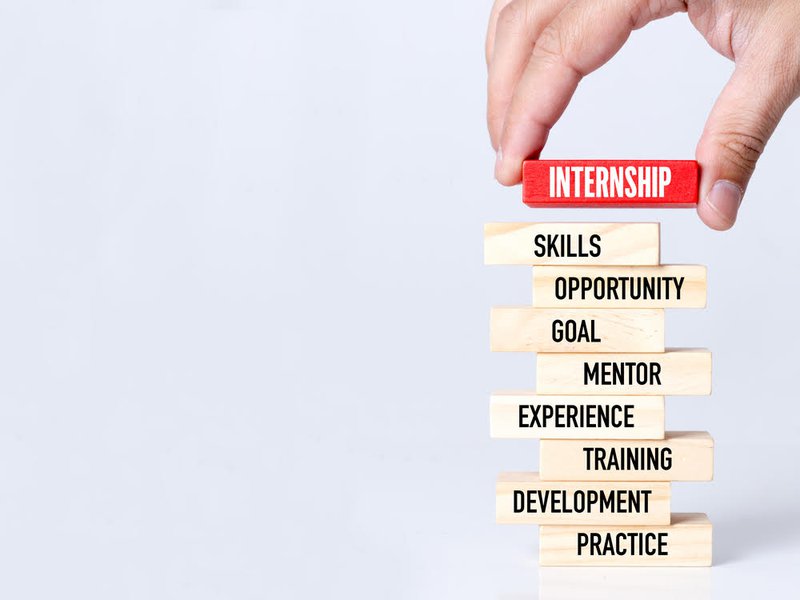
by admin | May 29, 2024 | Employee Handbooks, Employee Orientation, Employment Application, Interview Techniques, Job Analysis, Skills Gap Analysis, Uncategorized
Preparing for an internship involves several steps to ensure you’re ready to make the most of the experience. Here are some key steps to consider:
1. Research the Company:
– Understand the company’s mission, culture, products, and the industry it operates in. This will help you make informed contributions and ask insightful questions.
2. Review the Job Description:
– Familiarize yourself with the tasks you’ll be expected to perform. Understanding the skills and knowledge required will help you focus your preparation.
3. Update Your Resume and Cover Letter:
– Tailor your resume and cover letter to highlight skills and experiences relevant to the internship. Make sure they are error-free and professional.
4. Prepare for the Interview:
– Practice common interview questions and scenarios specific to the role you’re applying for. Consider doing mock interviews with friends or mentors to build confidence.
5. Develop Relevant Skills:
– Based on the job description, work on any skills you need improvement on. This could involve taking online courses, reading relevant books, or practicing certain tasks.
6. Network:
– Reach out to current or past employees at the company, especially those in the department you’re interested in. LinkedIn can be a great tool for this. Ask them about their experience and any advice they might have for a newcomer.
7. Understand Professional Etiquette:
– Learn about professional etiquette in your industry, including dress code, communication norms, and office behavior.
8. Set Goals:
– Think about what you want to achieve during your internship. Setting clear, achievable goals can help you stay focused and make the most of your experience.
9. Prepare Logistically:
– Ensure you know the commute time, workspace setup, start date, and work hours. If it’s a remote internship, check your internet connection and digital tools you might need.
10. Stay Organized:
– Keep track of important dates, tasks, and any materials you need for your internship. Using a planner or digital tools can help manage your responsibilities effectively.
By following these steps, you’ll be well-prepared to start your internship and make a positive impression!











